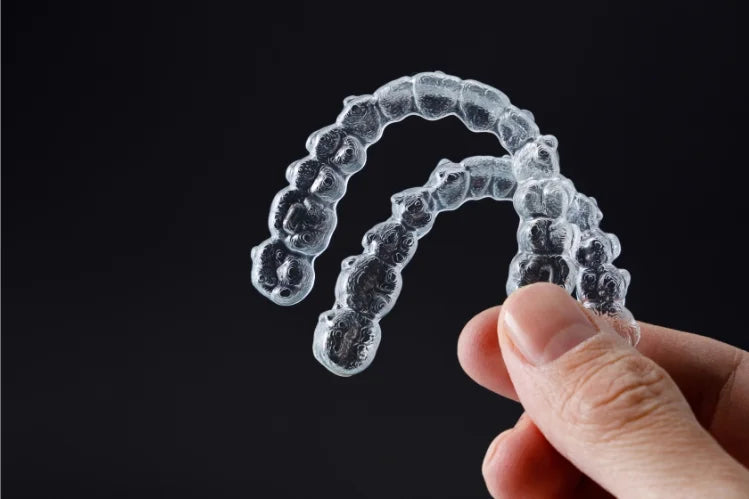Table of Contents
Aligners and retainers are two of the most highly regarded dental appliances in the world of orthodontics, with both seemingly providing excellent dental treatments to users across the globe. But when choosing between the two, which one should you go for?
To answer this question, we have compiled a list of benefits as well as their differentiating factors that can help you make an informed decision.
What Are Aligners?
Aligners are clear plastic trays used to gradually straighten teeth. They are frequently linked to clear aligner treatment. These specially designed aligners gently press teeth into the correct alignment.

Benefits of Aligners
The following are the benefits of aligners:
Invisible Appearance
Aligners provide a discreet orthodontic option because of their translucent appearance, which makes them less obvious than traditional braces.
Removability
Aligners are simply taken out for eating, brushing, and special events, offering more convenience and flexibility.
Comfort
Compared to metal braces, aligners usually cause less irritation and pain since they are made of smooth plastic.
What Are Retainers?
Conversely, retainers have a distinct function. Retainers help keep teeth in the new straightened position after orthodontic treatment, whether with braces or aligners. They guarantee long-term stability and stop teeth from moving back into their original places.
Benefits of Retainers
The following are the advantages of Retainers:
Effectiveness
By keeping teeth in their straightened locations, retainers help maintain the benefits of orthodontic therapy.
Prevents Dental Relapse
People can reduce the chance of their teeth moving back into their improper alignments by following the instructions on their retainers.
Custom-Tailored
To maximize their efficacy in preserving alignment, retainers are made to fit the specific dental anatomy of each patient.
Things To Consider Before Choosing
Let's now examine the main distinctions between retainers and aligners:
Functionality
During therapy, aligners actively shift teeth into their ideal alignment.
Retainers stop regression and preserve the alignment brought upon by orthodontic treatment.
Construction and Aesthetics
Aligners are composed of transparent, BPA-free plastic, they are almost undetectable while worn.
Retainers can be constructed of metal, acrylic, plastic, or other materials, and may also be visible depending on the type selected.
Treatment Time
The duration for aligner treatment depends on the severity of the case, with some cases requiring a time period of more than a year.
While retainers are usually worn for longer periods of time, it’s still best to consult with your dentist to assess whether you require a full time or night time wear.
Personalization
Every patient receives a unique set of aligners, and fresh sets are made regularly to account for tooth movement.
Although they are also custom-made, retainers mostly function to preserve the alignment as it is rather than actively correcting it.
To sum it up, both aligners and retainers offer different dental treatment, While one focuses on a perfect teeth alignment, the other ensures your teeth retain the newly achieved alignment. Moreover, it is best to consult with an expert beforehand that can assess your dental health and recommend the best possible solution for your smile.
FAQs
Q: How long will I have to wear my aligners or retainers?
Generally, retainers are worn for longer time frames depending on the time of day suggested by your dentist while aligners are worn depending on the severity of the case.
Q: How to choose between aligners and retainers?
If you’re looking to get a teeth straightening treatment, then aligners are the choice for you as retainers are primarily used after the aligner treatment to ensure your teeth stay in place.













